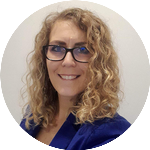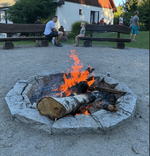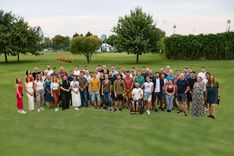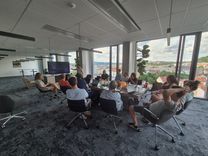What is the role of a Scrum Master at Logex? What was Anezka's journey to this position, and how does she perceive her position in a male-dominated team? You will find out everything in our interview :-)
Hey Anezka, tell us, how long have you been working at LOGEX?
I've been here for a year and a half.
Let's start easy. How was your winter trip to Zell am See in January?
It was great! A perfect mix of sports, fun, wellness, and networking. We all went from Brno together by bus. The journey took about 7 hours, and we had homemade pastries and drinks on the bus. This year, we even brought a guitar, so it was a trip full of experiences. On the first evening, we had dinner followed by a party at the bar, where we also met our international colleagues. During the day, everyone could choose whether to go skiing or participate in other activities organized for non-skiers. This year, we went snowshoeing on the glacier and to the spa. The evening was again organized for all participants (about 170 people from approximately 7 nationalities).
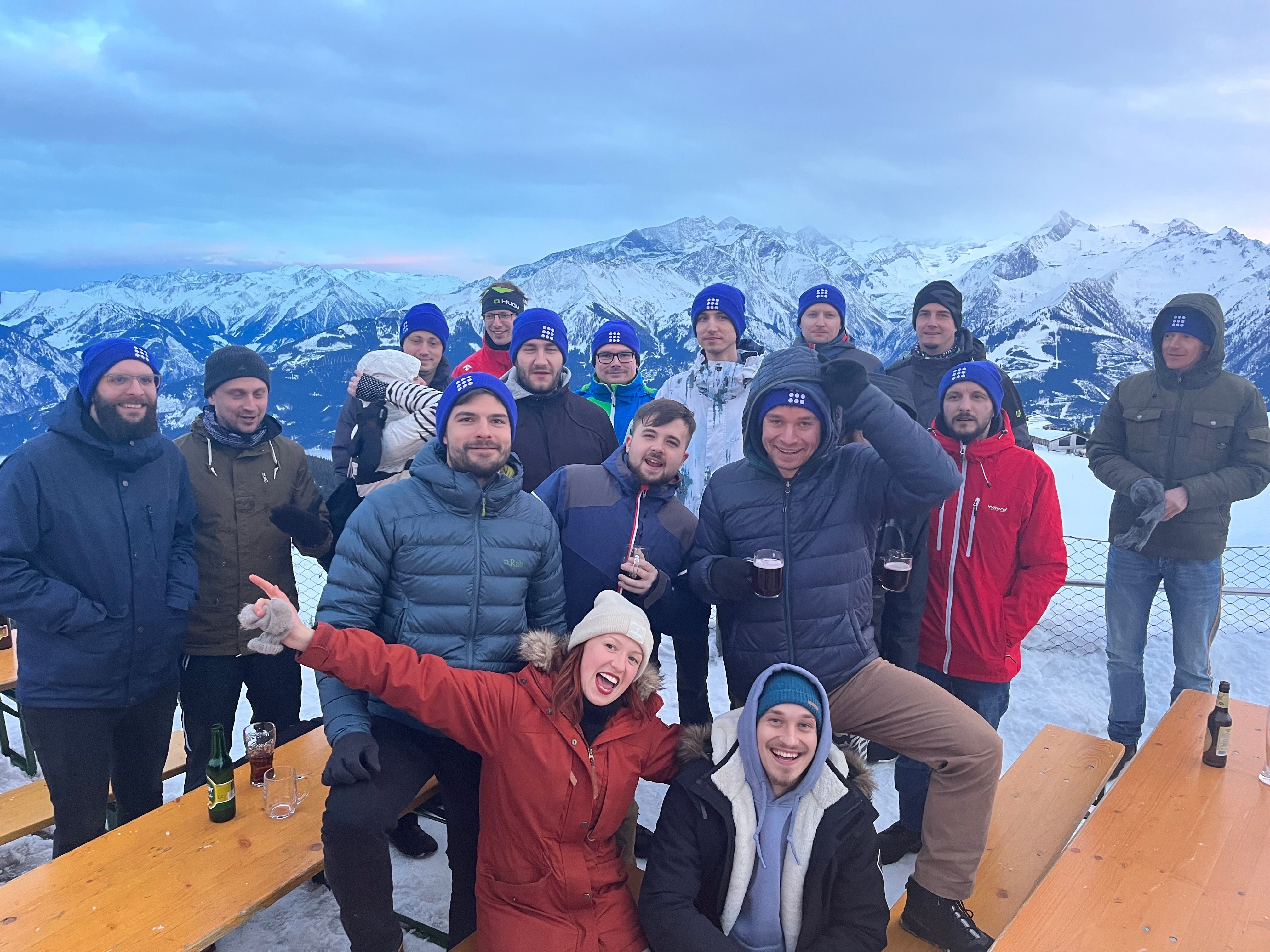
Could you tell us more about the responsibilities of a Scrum Master?
As a Scrum Master, my main role is to facilitate Scrum events such as planning, retrospectives, and other meetings. I ensure that the necessary information for the team's work is shared during these meetings and that everyone understands what's happening, who is responsible for what, and that there are no misunderstandings or silos. I strive for the most transparent process possible. As an SM, I also try to look at our work and processes with a critical eye to ensure we stay aligned with agile principles and values. Creating a safe environment within the team where people respect each other and feel comfortable sharing ideas is also important. Additionally, I collaborate closely with product owners, architects, and other developers.
You recently got promoted to the position of Scrum Master. Can you tell us more about that?
Here at LOGEX, Scrum Masters also serve as line managers for the development team. So when I joined, it was expected that once I grew into this dual role, I would take over LM responsibilities as well.
One of the key aspects was getting to know people within the company and building relationships with team members and colleagues in the Netherlands, making it easier to address issues or escalate matters to higher management later on. The main difference between the roles of SM and LM is that LM focuses on individuals within the team - addressing their personal development, internal mobility, aspirations, and concerns, advocating for "their" people at the management level, as well as handling salary and hiring matters - recruitment, onboarding, and offboarding. I think this is where I've seen the biggest change, as it's a significant responsibility, and I feel like I represent people and their work. Conversely, towards the team, I act as a messenger from above. I believe this difference is what I'm most aware of. As a Scrum Master, I served as a bridge between the development team and the business requirements of the product owners. As an LM, I balance between the team's satisfaction and providing direction and making decisions from above.
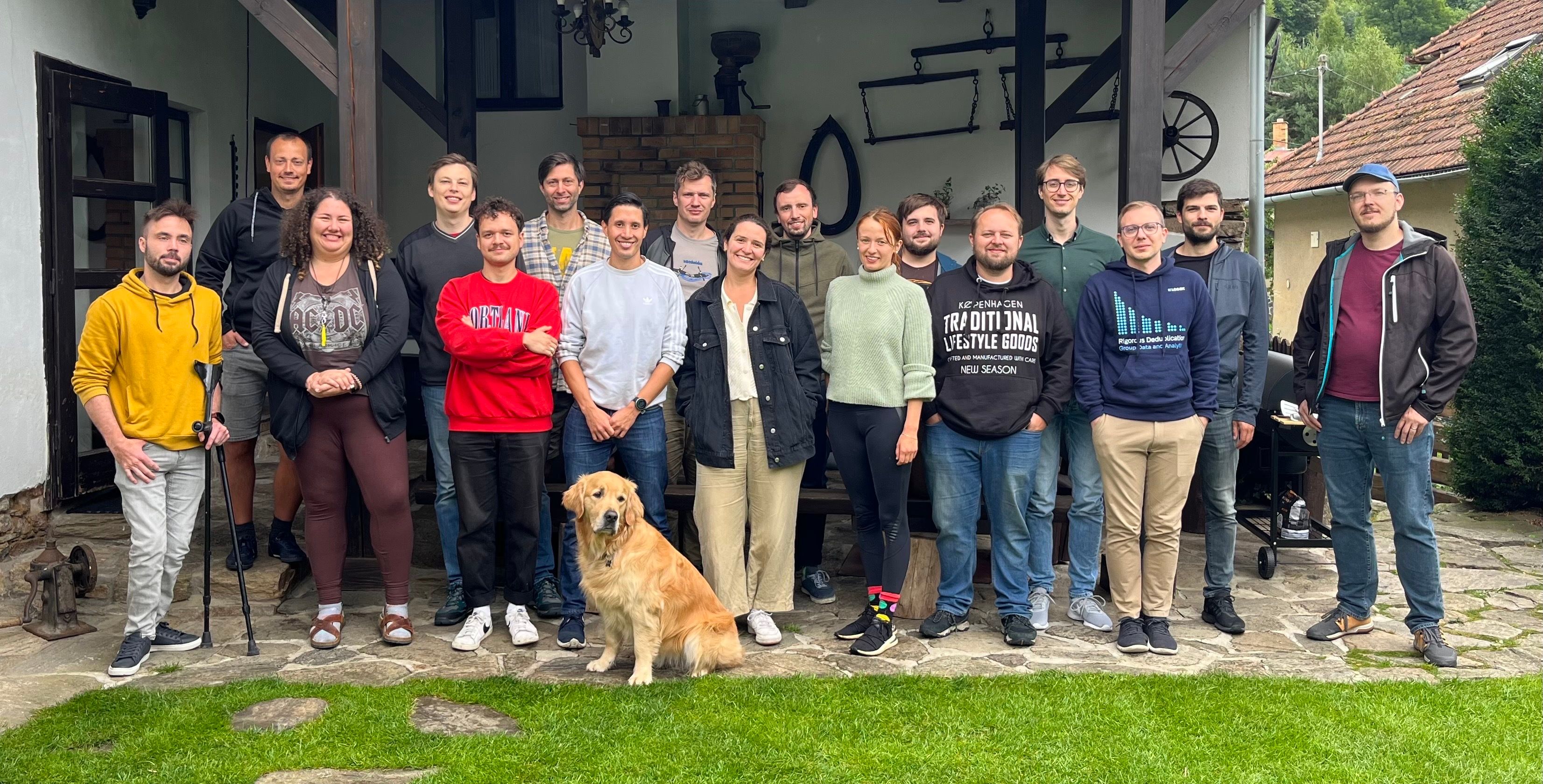
We're pleased to have a woman in this leadership position at LOGEX. How do you perceive your contribution in a predominantly male team here in Brno?
I think having female energy in a predominantly male team is great. I'm glad it's appreciated, and I feel supported. But actually, I hadn't noticed until now that I'm the only woman in a leadership position here in Brno. Which is probably a good thing, right? I think what's more noticeable is that I don't have such a long history in the company, and I have a completely different background than other Scrum Masters. Anyway, as a woman, I bring that caring and nurturing aspect to the team. What I believe I bring is a focus on corporate culture, identity, overall satisfaction, and engagement.
How did you get into this role? What was your journey like?
During high school and college, I volunteered for YFU CZ, an organization that organizes intercultural exchange programs for high school students from around the world. These young people who come to the Czech Republic stay with host families and study at a Czech high school for one year. It wasn't an easy year. Suddenly, you're alone in a foreign world among strangers, not understanding anything. Moreover, you're not part of the Erasmus student community but truly with local residents. That's why the YFU organization has a program designed to prepare these exchange students for a year and help them cope with this turbulent life during the exchange. And this program of seminars and support is provided by volunteers.
Here, I found that I enjoyed designing sessions and helping people reflect and being in a facilitator role. That's why during my studies, I looked for a field where I could use these principles. First, I went into HR and adult education, and for my master's studies, I focused on project management, where I first encountered agile development, which excited me a lot.
During one workshop, I tried out the role of a facilitator in design thinking, and I thought, this is it! At that moment, I knew I had found my ikigai (note red. Japanese concept of finding the meaning of life).
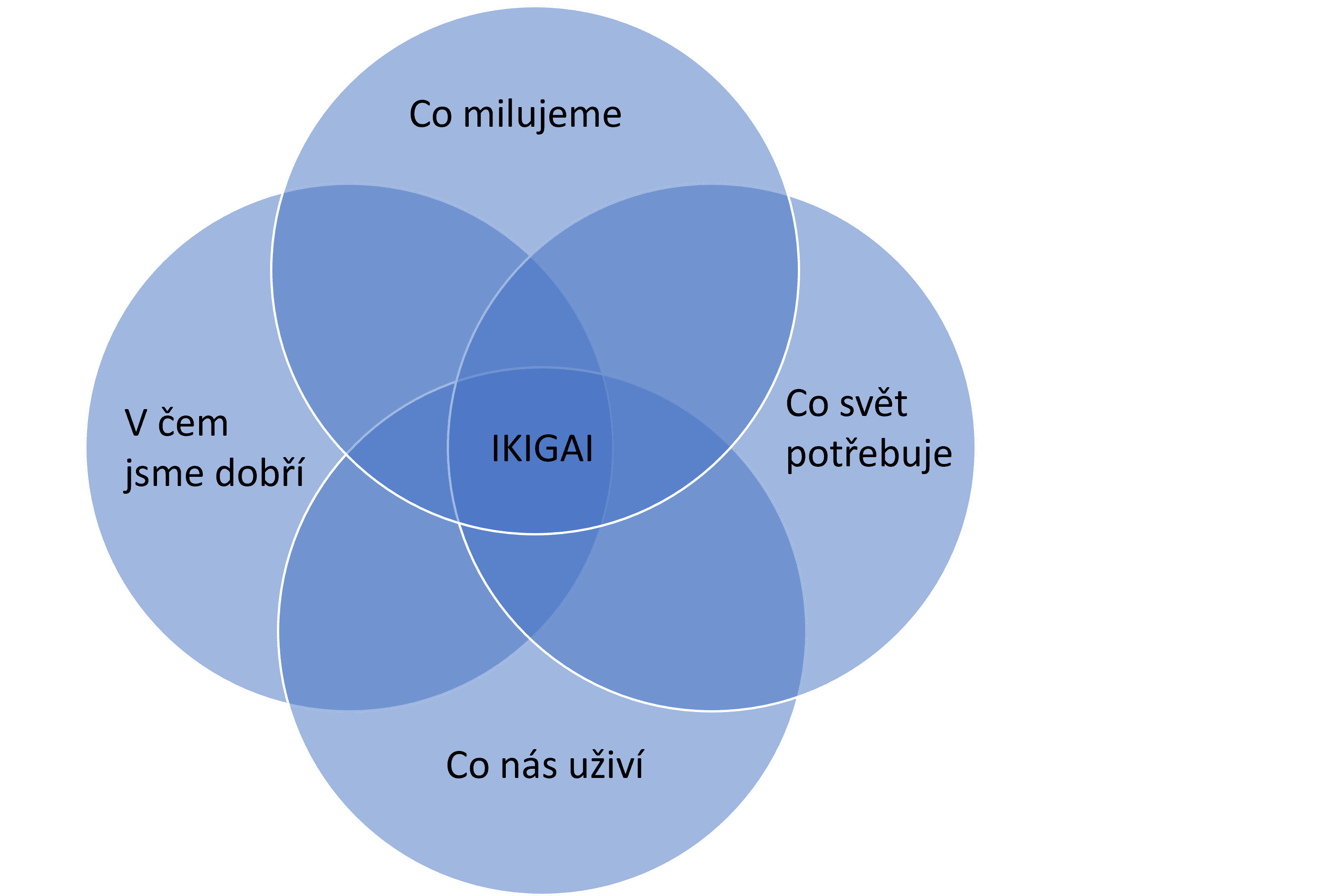
When I was looking for a job after my studies, I decided to look for a Scrum Master position.
In the LOGEX ad, they wrote that they were open to junior candidates, which excited me! When I wrote a motivational letter, it didn't sound like me at all, and even though I rewrote it about 50 times, in the end, I decided to shoot a video and say something similar in it. It was successful, and I was invited for an interview. Then it went very quickly, and before I knew it, I was starting. At the beginning, I shadowed a Scrum Master for about a month, after which I took over the team. Gradually, I started taking over individual Scrum ceremonies. I was prepared for it myself only after I understood a little bit how our internal processes and interpersonal relationships work. If I remember correctly, I functioned autonomously only after about 3 months.
Do you have any advice for others who want to become Scrum Masters or improve in this role?
The fact that you don't have an IT education or technical background isn't an obstacle. And the key is always to go back to the fundamentals rooted in Scrum and the Agile Manifesto and how simple things are and don't need to be overcomplicated or overthought.
What do you like to do in your free time?
I like making things - working with wood and making various modifications to my house and garden. Besides that, I train with my dog and enjoy adrenaline-fueled experiences.
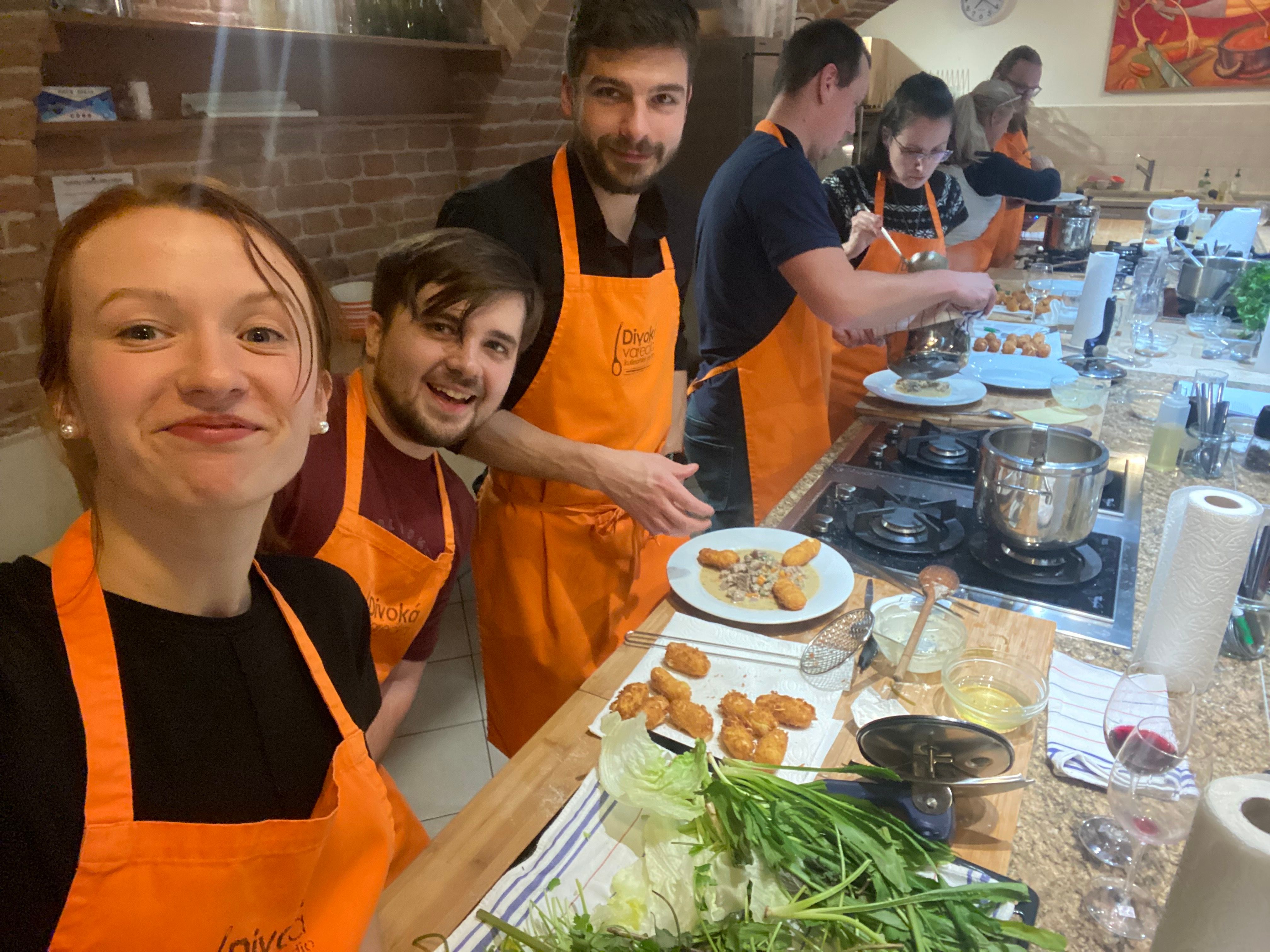
If you had to say one thing that makes you stay at LOGEX and what could attract other new colleagues, what would it be?
Family vibe


